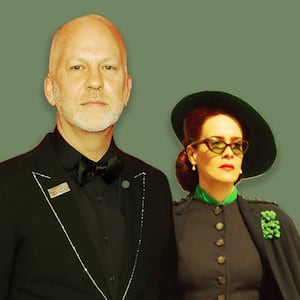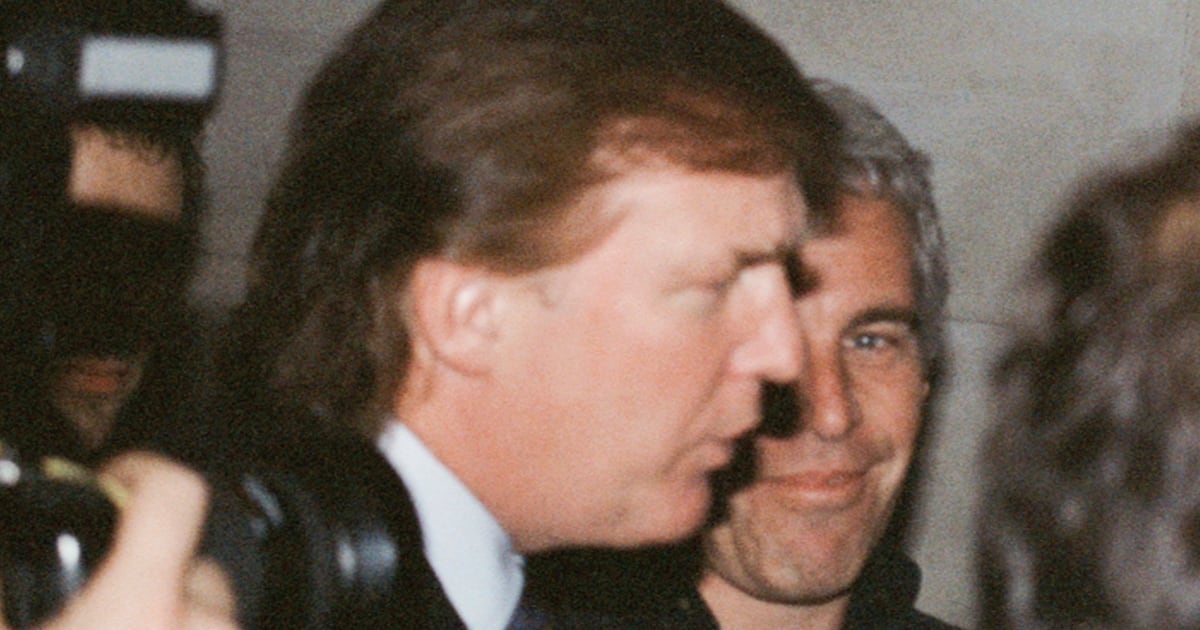To understand how a lot of longtime Sarah Paulson fans feel about her, look no further than a recent viral TikTok video from the account @iwantafrankoceanalbum. “Any movie, any show, any thing that this girl is on, it’s automatically a 10 out of 10,” the TikToker, Nijhea, says. “You don’t even gotta watch it.”
It’s... really true. If a project happens to star Sarah Paulson, be it great or terrible, I know I want to watch just to see what she does with it. I didn’t exactly love Ratched, but even I have to admit it was eminently watchable—all thanks to performers like Paulson and Sharon Stone, whose very presence is engrossing.
But what is it about my best friend and yours, Sarah Paulson, that makes her performances so captivating—especially on television?
I still think about the two Desperate Housewives episodes in which Paulson appeared as Lynette’s troubled sister Lydia. When we first meet Lydia, Lynette has called her for lunch to try and unload their toxic mother—but Lydia knows what her sister is up to, and met with her therapist beforehand. She’s brought notecards. As Lydia hurriedly reads, “My boundaries are strong, I know what I want, and I deserve to be happy,” I get whiffs of Laurie Metcalf’s longer, masterful turn as Aunt Jackie in Roseanne.
But Ryan Murphy has been Paulson’s best and longest-running champion. For years, she has been his muse on American Horror Story as well as shows including The People v. O.J. Simpson and, now, Ratched. Although Paulson collaborated with Murphy a couple times pre-AHS, it was on the anthology series where Murphy first got to really showcase her talent.
Billie Dean Howard, on AHS’s first season, Murder House, was a fun medium character who returned a couple times throughout the series—but in Season 2, Asylum, Paulson got her first true dramatic arc on the show as Lana Winters—a '60s journalist imprisoned in the mental institution Briarcliff Manor against her will. The character remains her most beloved to date, and for good reason.
Even on Freak Show, a controversial season within AHS, Paulson managed to shine as conjoined twins Betty and Dot—characters she portrayed with empathy even as they committed horrific acts. And in Hotel, as “Hypodermic Sally” McKenna, Paulson made her portrayal of a ghost more human than any of the living.
That might be the thing that makes Paulson and Murphy such keen collaborators; they both tend to treat their characters with an ambivalent kind of sympathy—even when it’s not entirely clear whether they deserve it. And TV, as a medium, rewards Paulson’s willingness to meet a character on their terms—giving her more space to unspool them as she does.
The real showcase for Paulson’s compelling empathetic well came with The People v. O.J. Simpson, in which she played Marcia Clark. The season became part of a broader public redemption for the real-life Marcia Clark, who even appeared by Paulson’s side at the Emmys.
As Marcia, Paulson made the pain of being the long-derided lead prosecutor in the O.J. Simpson trial palpable. With every worried flick of her eyebrow or twitch of her lips, Paulson conveyed the pressure that suffocated Clark at the time—and the cruel injustice of the sexist ridicule she received.
And even in the complicated Mrs. America, Paulson brought innocence to Alice McCray—a fictional character whose existence in the show might have been necessitated by broader problems, but whose drugged-out journey through the National Women’s Conference I nonetheless loved watching.
And now, Ratched. Whatever one might say about the writing, Paulson’s performance is as delightful as ever. Certain moments—involving stolen peaches and suggestive oyster dinners—are Murphy and Paulson at their best. Even if the show never quite cracks its central character (there’s always next season), Paulson remains undefeated.







